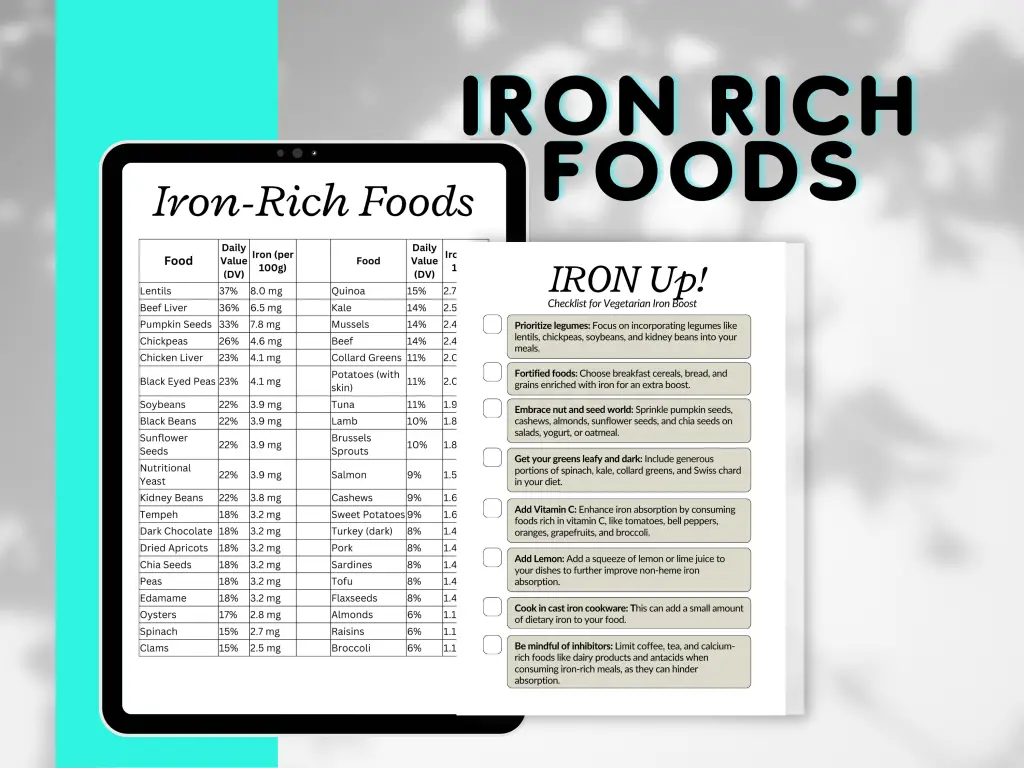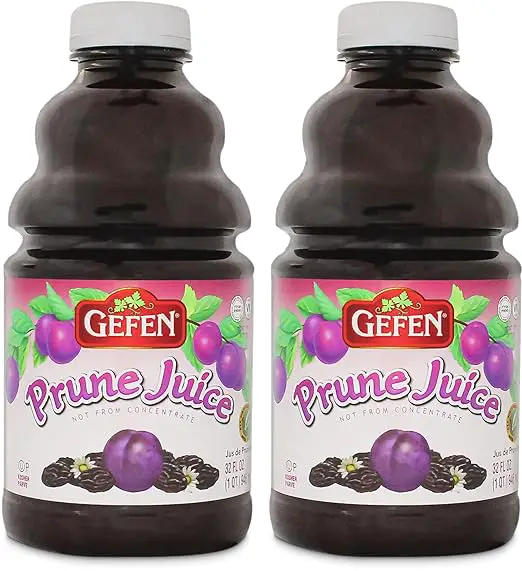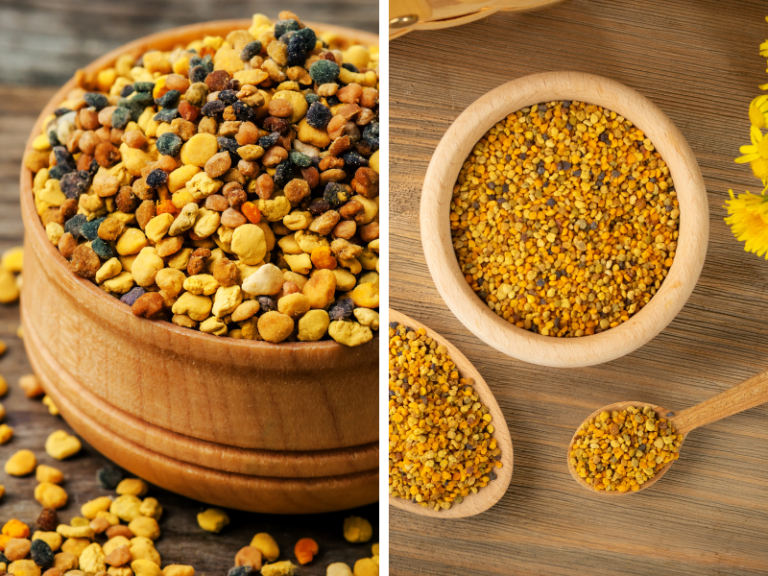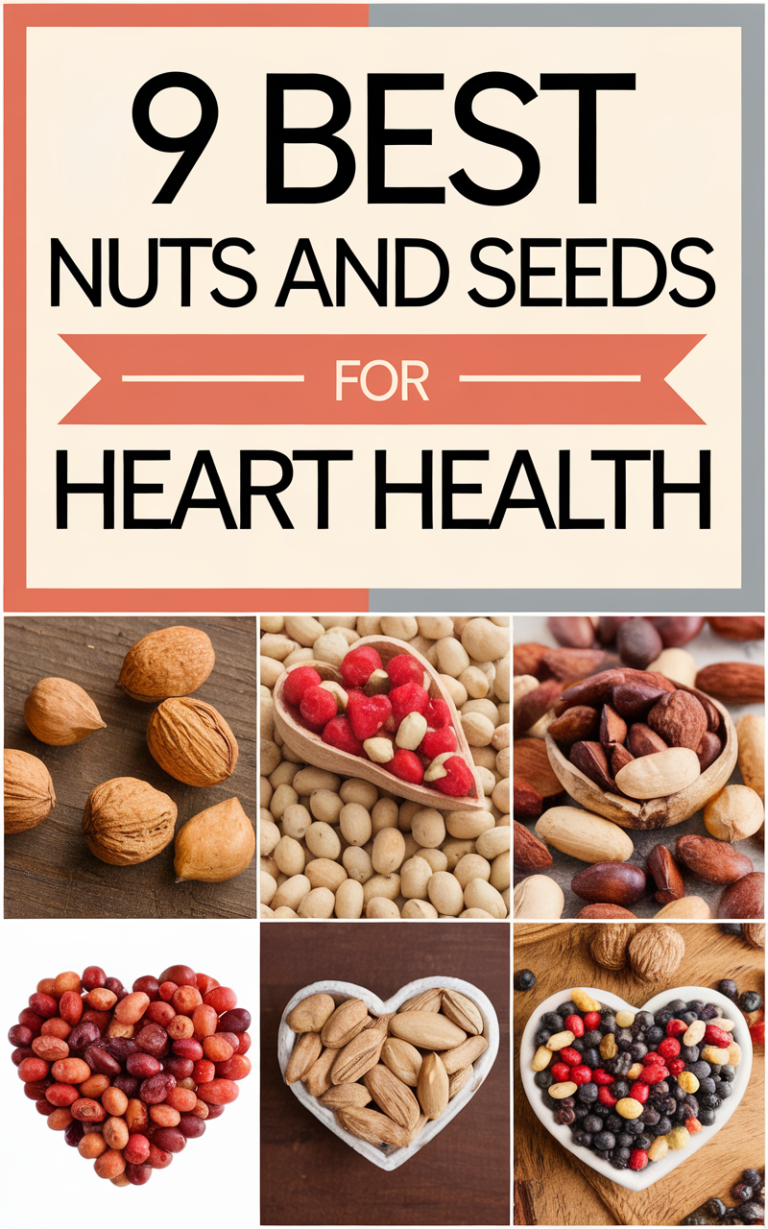7 Delicious Drinks to Combat Iron Deficiency
Iron deficiency is a common nutritional problem that affects millions of people worldwide. If you’re feeling tired, weak, or experiencing other symptoms like pale skin or hair loss, you might be lacking this essential mineral. But fear not! There are delicious drink options that can help combat iron deficiency and boost your overall health. In this article, we’ll explore the causes, symptoms, and risks of iron deficiency, discuss the importance of iron in your body, and reveal the top seven tasty beverages that can increase your iron intake.
Understanding Iron Deficiency
Iron deficiency occurs when your body doesn’t have enough iron to produce adequate amounts of red blood cells, leading to a decrease in oxygen-carrying capacity. This condition is more common than you might think and affects a significant portion of the population.
Iron is an essential mineral that plays a crucial role in many bodily functions. It is a key component of hemoglobin, the protein in red blood cells that carries oxygen from the lungs to the rest of the body. Without enough iron, your body cannot produce sufficient hemoglobin, resulting in a reduced ability to deliver oxygen to your tissues and organs.
There are various factors that can contribute to iron deficiency. One of the most common causes is a lack of iron-rich foods in your diet. Not consuming enough meat, fish, leafy greens, or legumes can put you at risk. It’s important to note that iron from plant-based sources, such as spinach and beans, is not as easily absorbed by the body as iron from animal sources. Therefore, vegetarians and vegans may need to pay extra attention to their iron intake and consider taking supplements if necessary.
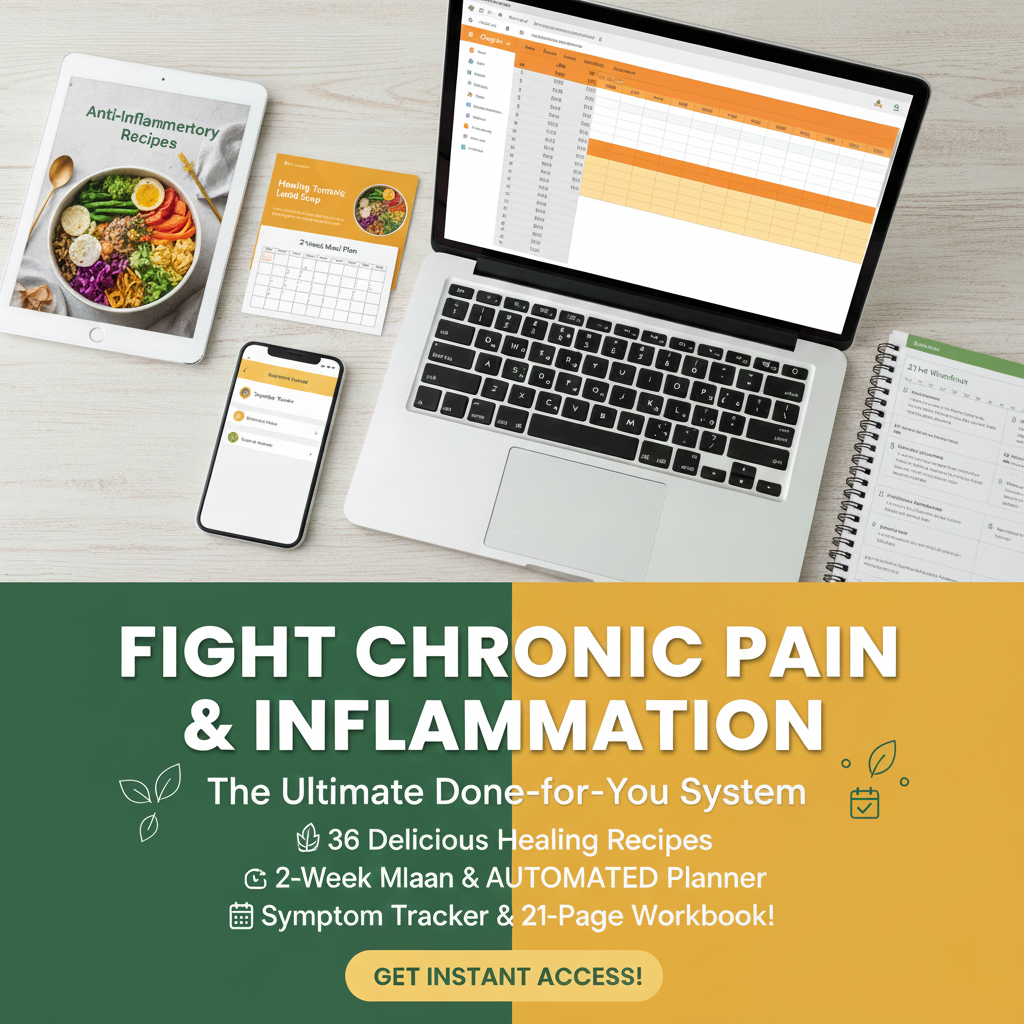
What`s inside:
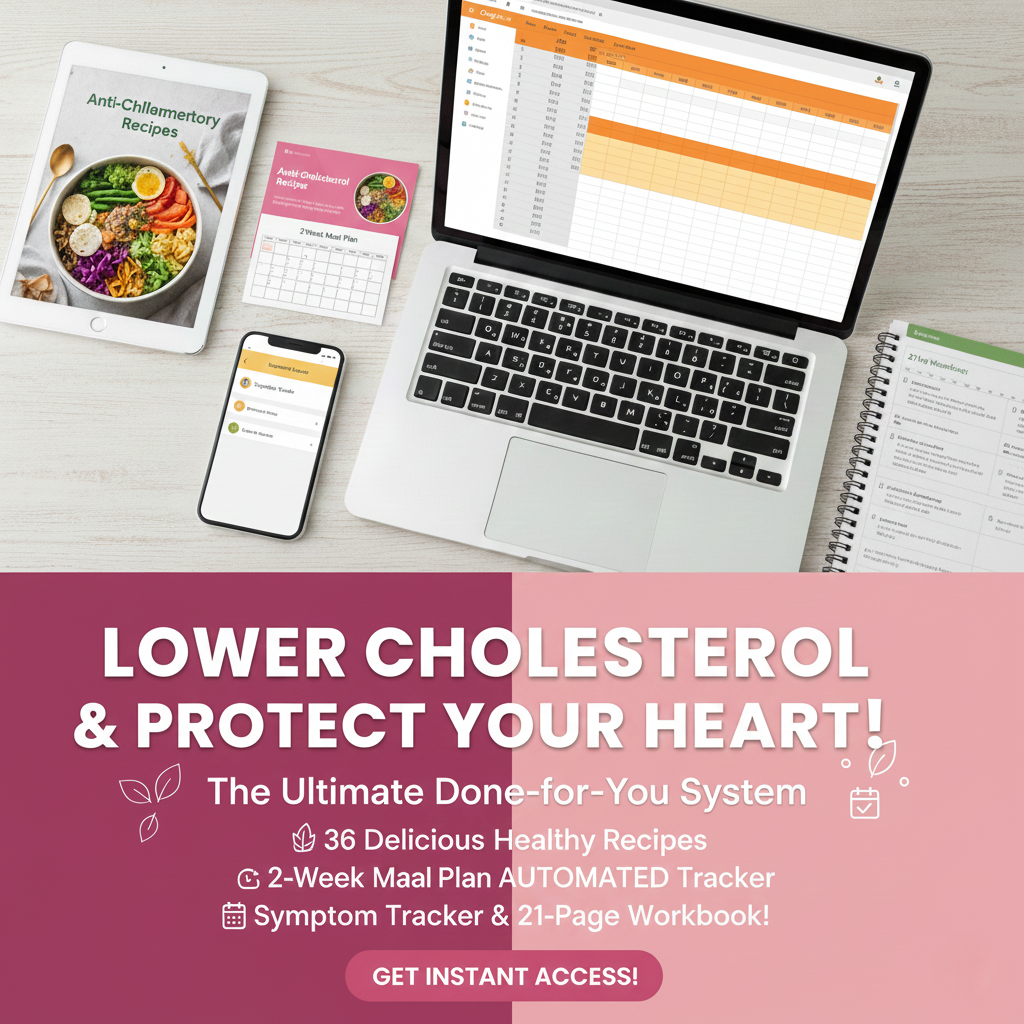
– A list of 40 iron rich foods sorted by daily value of iron
– A checklist for those following vegetarian diet to increase iron absorbtion and avoid anemia
Get your copy HERE
In addition to dietary factors, certain medical conditions can interfere with iron absorption. For example, individuals with celiac disease, an autoimmune disorder that affects the small intestine, may have difficulty absorbing nutrients, including iron. Gastrointestinal surgeries, such as gastric bypass, can also impact iron absorption by altering the digestive process. It’s crucial for individuals with these conditions to work closely with their healthcare providers to manage their iron levels effectively.
Women, especially menstruating women, are particularly prone to iron deficiency due to increased blood loss during their monthly periods. The average woman loses about 30-40 milliliters of blood during each menstrual cycle, which contains a significant amount of iron. Over time, this blood loss can lead to a gradual depletion of iron stores in the body. Pregnant women also have higher iron demands to support the growth and development of their babies. As a result, they are more susceptible to iron deficiency if their dietary intake is inadequate.
Symptoms and Risks of Iron Deficiency
Iron deficiency can manifest in various ways, and its symptoms can range from mild to severe. Early symptoms may include fatigue, weakness, and a decreased ability to concentrate. These symptoms can often be overlooked or attributed to other factors, such as stress or lack of sleep. However, it’s important to recognize them as potential signs of iron deficiency and seek appropriate medical attention.
As the deficiency progresses, you may experience more pronounced symptoms, such as shortness of breath, rapid heartbeat, and pale skin. These symptoms occur because your body is struggling to supply enough oxygen to its tissues and organs. In severe cases, iron deficiency can lead to anemia, a condition characterized by a significant decrease in the number of red blood cells or a low level of hemoglobin. Anemia can have serious consequences for your health if left untreated, including impaired cognitive function, decreased immune response, and an increased risk of complications during pregnancy.
It’s important to remember that iron deficiency is a treatable condition. If you suspect that you may be iron deficient, it’s crucial to consult with a healthcare professional who can perform the necessary tests to confirm the diagnosis. Treatment typically involves iron supplementation and dietary modifications to increase iron intake. With proper management, most individuals can restore their iron levels and alleviate the symptoms associated with iron deficiency.
The Role of Iron in Your Body
Iron plays a crucial role in your body’s overall well-being. It is an essential mineral that supports various bodily functions.
Importance of Iron for Health
Iron is needed to produce hemoglobin, the protein in red blood cells that carries oxygen from your lungs to the rest of your body. Without enough iron, your organs and tissues won’t receive sufficient oxygen, leading to fatigue and other symptoms. Iron also aids in the proper functioning of your immune system and helps maintain healthy skin, hair, and nails.
How Your Body Absorbs Iron
Iron absorption can be a complex process. Your body absorbs two types of iron: heme iron from animal sources and non-heme iron from plant-based foods. While heme iron is more easily absorbed, consuming non-heme iron alongside foods rich in vitamin C can enhance absorption. This is why it’s important to combine iron-rich drinks with vitamin C-rich sources for optimal benefits.
How Drinks Can Help Increase Iron Intake
Drinks can be an excellent way to increase your iron intake, especially if you’re not a fan of traditional iron-rich foods. In liquid form, iron is more readily absorbed by the body, making these beverages an effective option to combat iron deficiency.
The Science Behind Liquid Iron Absorption
Research suggests that liquid iron may be more bioavailable than iron in solid form because it doesn’t require as much processing by your digestive system. The body can absorb liquid iron more efficiently, ensuring that you receive a greater portion of the mineral.
Benefits of Combining Iron with Vitamin C
Vitamin C-rich foods and drinks can enhance iron absorption by converting non-heme iron into a form that is easier for your body to absorb. Combining iron with vitamin C-rich sources like citrus fruits, strawberries, or bell peppers can significantly improve the amount of iron your body can utilize.
Top 7 Delicious Iron-Rich Drinks
To help combat iron deficiency and improve your overall health, here are seven delicious drink options that are packed with iron:
1. Liquid Iron
Liquid iron supplements are known for their quick absorption by the body. Unlike some solid iron supplements that may take longer to break down and absorb, liquids are readily assimilated, making them an excellent choice for those with low iron levels who need a rapid boost.
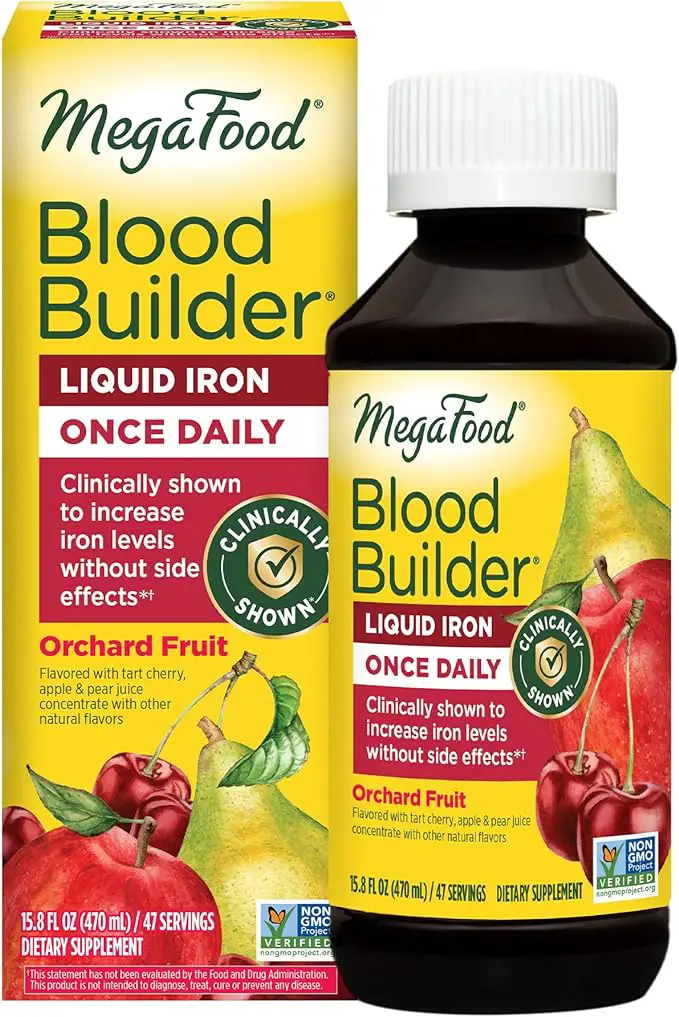
2. Spinach and Kale Smoothie
Blend together a handful of iron-rich leafy greens like spinach and kale with your favorite fruits for a nutritious smoothie. Spinach and kale are excellent sources of non-heme iron, and when combined with vitamin C-rich fruits, this smoothie becomes a powerful iron-boosting drink.
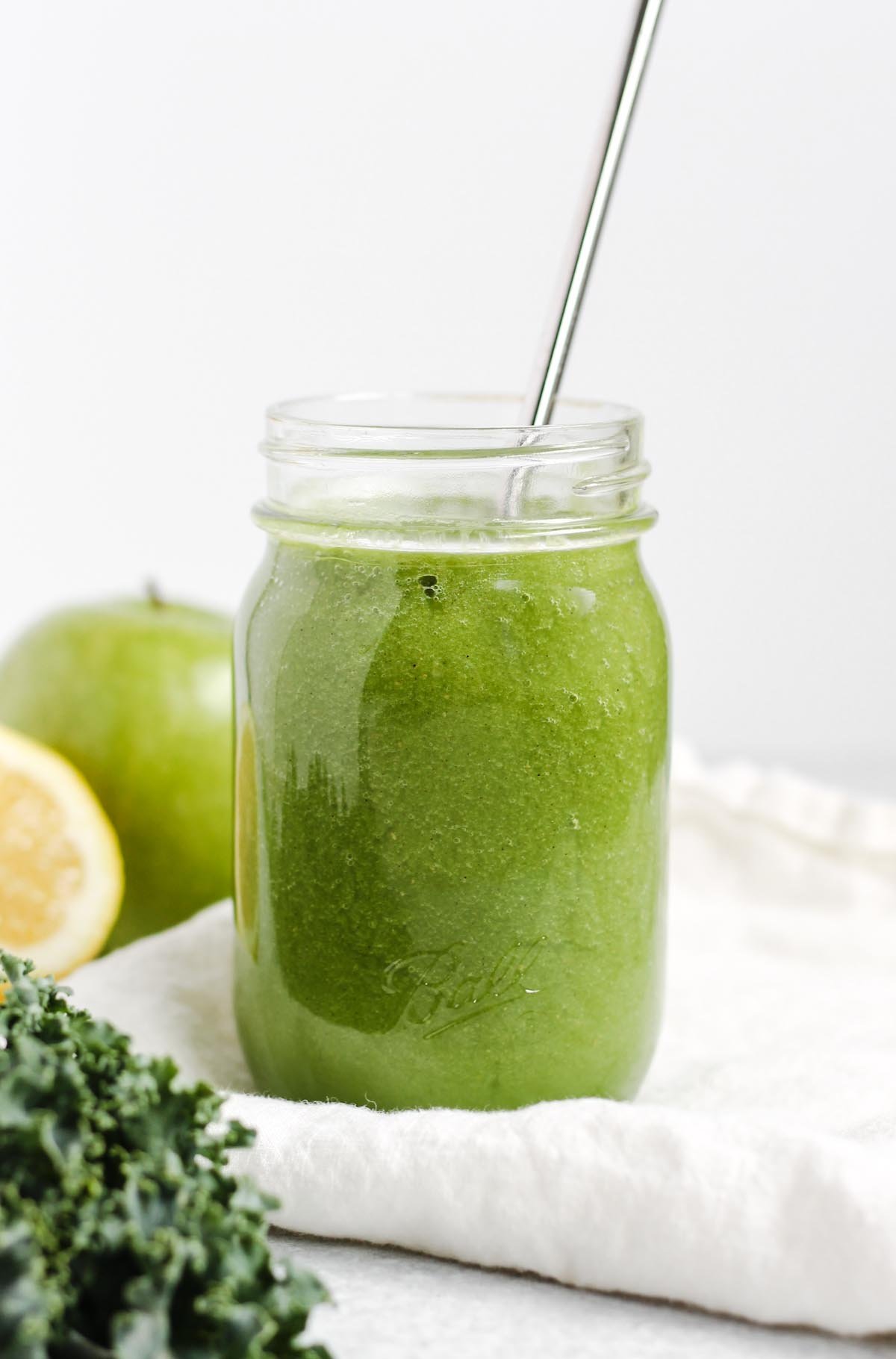
Get th full recipe at cleanplatemama.com
Blackstrap molasses is a concentrated source of iron and other essential minerals. Mix a tablespoon of blackstrap molasses with warm water and a squeeze of lemon juice to create a tasty and effective iron-rich drink.
4. Prune Juice
Prune juice not only helps with digestion but is also a great choice for increasing your iron intake. Prunes are known for their high iron content and can be conveniently enjoyed in juice form to combat iron deficiency.
5. Beetroot and Apple Juice
This vibrant and refreshing juice combines the iron-rich qualities of beetroot with the natural sweetness of apples. Beets are an excellent source of non-heme iron and can provide an array of other health benefits as well.
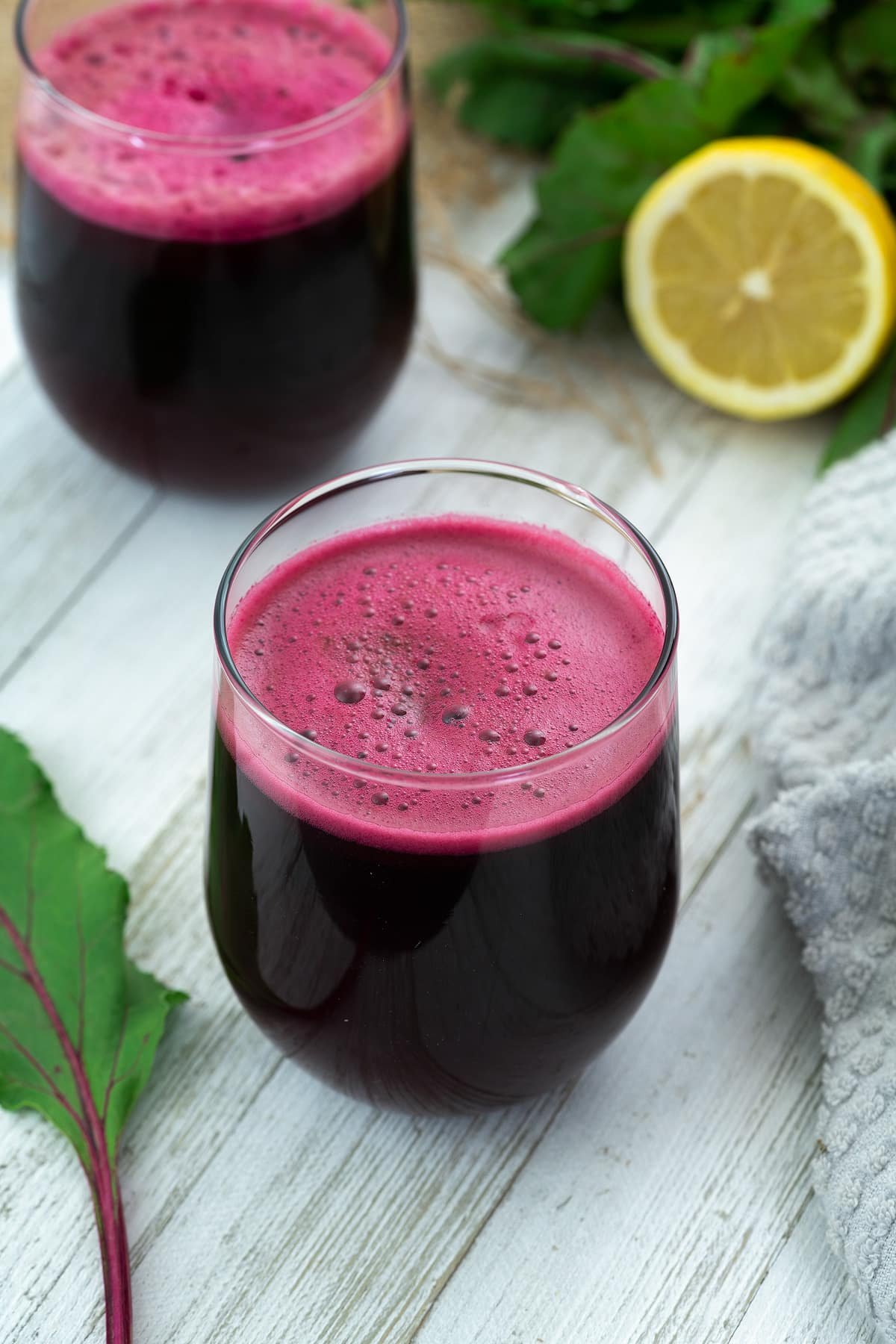
Image credit and the full recipe: yellowchilis.com
6. Tomato Juice
Tomato juice is not only a delicious way to quench your thirst but is also a good source of iron. Pair it with a vitamin C-rich snack, like a bowl of fresh strawberries, for an iron-enhancing boost.
7. Pomegranate Juice
Pomegranate juice is not only rich in antioxidants but also contains iron. Sip on this tangy and refreshing beverage to increase your iron intake while enjoying its many health benefits.
Remember, while these drinks can provide a significant iron boost, it’s essential to incorporate a balanced diet with a variety of iron-rich foods for optimal results. If you suspect you have iron deficiency, it’s always a good idea to consult with a healthcare professional for proper diagnosis and treatment.
By incorporating these delicious iron-rich beverages into your daily routine, you can combat iron deficiency in a flavorful and enjoyable way. Stay hydrated, nourish your body, and give yourself the iron you need to thrive!


